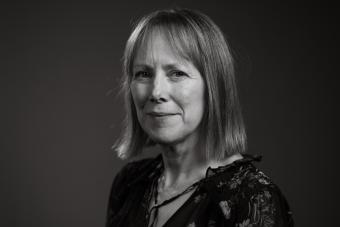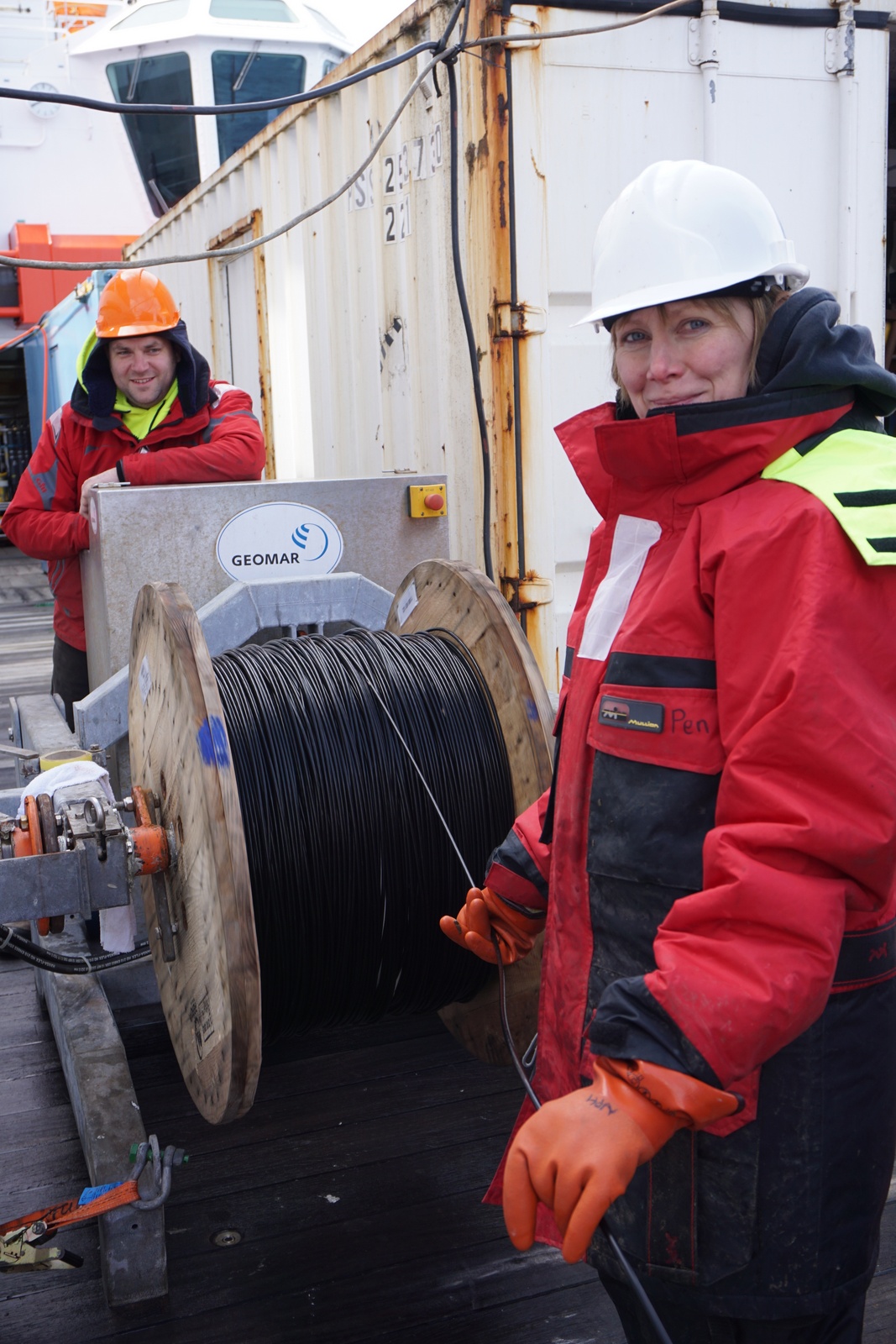It's incredibly rewarding to feel that the work you do is contributing to a global effort to make the world a better place to live and flourish.
The Atlantic Meridional Overturning Circulation (AMOC) is a key part of our planet’s climate system transporting heat thousands of kilometres across the Atlantic Ocean, directly impacting weather in the UK. Scientists from the National Oceanography Centre (NOC) are at the forefront of observing and understanding changes in the movement of the AMOC, vital in helping us to understand how it’s responding to climate change and potential repercussions for society.
For this month’s scientist spotlight, we caught up with NOC’s Associate Director for National Capability Science Professor Penny Holliday on her role as part of an international community of researchers, who are unlocking the mysteries of the AMOC.
What is your role in research at NOC?
My role at NOC is to lead teams of people who deliver research programmes that generate new knowledge through innovation and creativity. The outputs of the programmes I lead now range from academic publications, through new sensors, data sets, and ocean and climate models, all the way to evidence for policy advice.
In practice, this means I can be found tackling anything from writing funding proposals, supporting people in their career and skills development, arranging meetings to facilitate exchange of information and stimulate creativity in research ideas, right through to writing research papers. At this stage of my career, as NOC’s Associate Director for National Capability Science, I spend more time enabling other people to do their own research, than getting into the nitty gritty of new analysis and discovery myself.
What drew you to working in this area?
The truth is that I didn’t know anything about marine science, or that it was a possible career choice before I took my first job. I started to enjoy science as a young teenager because I found it easy and because it was fun to understand why the natural world around me was shaped as it was. My favourite subjects at school were physical geography, geology and physics. At 22 years old and with my geology degree certificate in hand, I was looking for any science job (as long as it wasn’t working on an oil rig!). It just so happened that a job in science coordination came up at the Institute of Oceanographic Sciences, and I was lucky enough to be offered the post.
When I first started working in oceanography I was in a team that was coordinating a huge international programme to measure the global ocean circulation, something that had never been attempted before the 1990s.
I was drawn to the job by the excitement of working with people from more than 30 countries and the chance to travel overseas for my job. Furthermore, I found satisfaction in the sheer challenge of tracking all the activities and datasets of the many contributing research centres in the era before the internet and before emails were commonly used. It appealed to my fondness for getting things in order and keeping good records!
After just two years in this job, I was given a chance to go on a research expedition to the Southern Ocean. It was this exciting opportunity that sparked my interest in learning about the ocean more deeply, starting with a part-time PhD project and leading to a new role as a researcher.
What science are you currently working on?
Throughout my career, I have worked on science programmes that look at how ocean currents work, how and why they are changing, and how changes in currents affect society. Over the past decade, my attention has been primarily devoted to studying the Atlantic Meridional Overturning Circulation (or AMOC for short).
The AMOC is a global-scale system of currents that matter to us because they move huge amounts of heat around the world. Notably for the UK, our mild winters are in part down to the action of the AMOC in bringing heat northwards from southern latitudes. The warm ocean then acts to warm the air that travels across the UK in our weather systems. One climate consequence of greenhouse gas emissions is that the AMOC is likely to slow down, and it is of great importance that we are prepared for all the changes that will bring to the UK and the rest of the world. My science is part of a large international community of researchers who are gradually unlocking the mysteries of how the AMOC works, how it has changed in the past, how it will change in the future, and how that will translate into impacts for societies.
What is your favourite thing about the work you do?
Two things: firstly, it’s all about the people – the generous spirit of cooperation, of sharing ideas and working towards a joint goal, supporting, and being supported by others is something I have treasured in all the different roles I have had in my career. Science is by nature a team effort, whether it is an international research programme; a PhD project; a research project run between NOC and university partners; a team of mariners, scientists, engineers and technicians on a research expedition; leading or a group of 60 people working on many difference projects at NOC. I have been fortunate enough to work with so many different people who have helped me, and now I am lucky enough to be in a position to pay that forward by supporting even more people!
And then secondly, it’s simply that the marine environment is fascinating, and every day I learn new things about the ocean. It’s a privilege to work in a centre where people are doing such interesting work – to be able to hear about and share in the excitement about new discoveries and inventions. It’s incredibly rewarding to feel that the work you do is contributing to a global effort to make the world a better place to live and flourish.
What impact does your science have on society?
Many people are unaware that changes in the AMOC will profoundly alter rainfall rates, affect sea level rise, and increase storminess and heatwaves – not just in the UK, but in countries all around the Atlantic Ocean. Our research programmes are working to use new knowledge of ocean and atmospheric physics to improve our confidence in the future scenario projections of climate models.
With more robust information, policymakers can plan preparation and adaption actions and investment, and businesses, infrastructure owners and householders can be prepared for the changes that are coming. Importantly too, our research highlights the consequences of greenhouse gas emissions and provides a sound evidence base for policy decisions about reducing emissions to limit climate change damage to communities and biodiversity.
More from Professor Penny Holliday
Ocean Horizon blog
Prof. Penny Holliday, NOC’s Associate Director of National Capability Science explains current research into the AMOC, how recent discoveries have challenged our previous understanding, and key priorities for future work to provide better actionable evidence for climate mitigation and adaptation.


